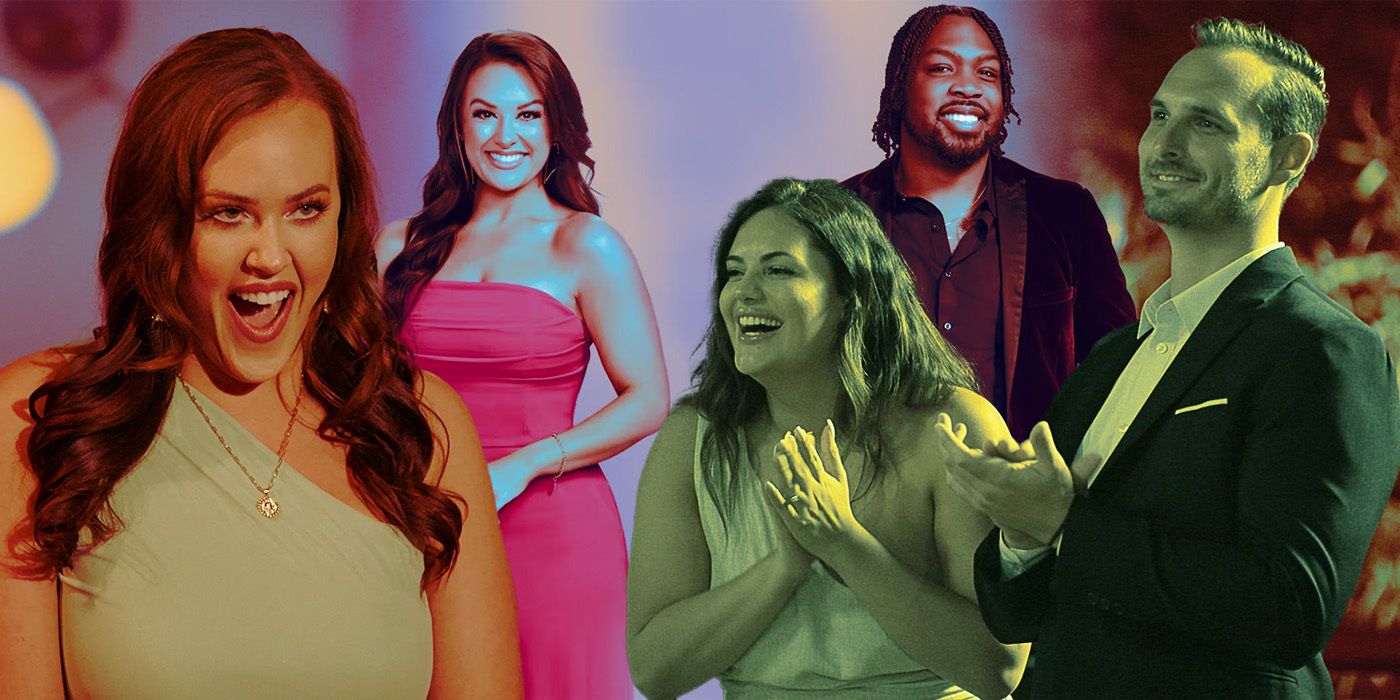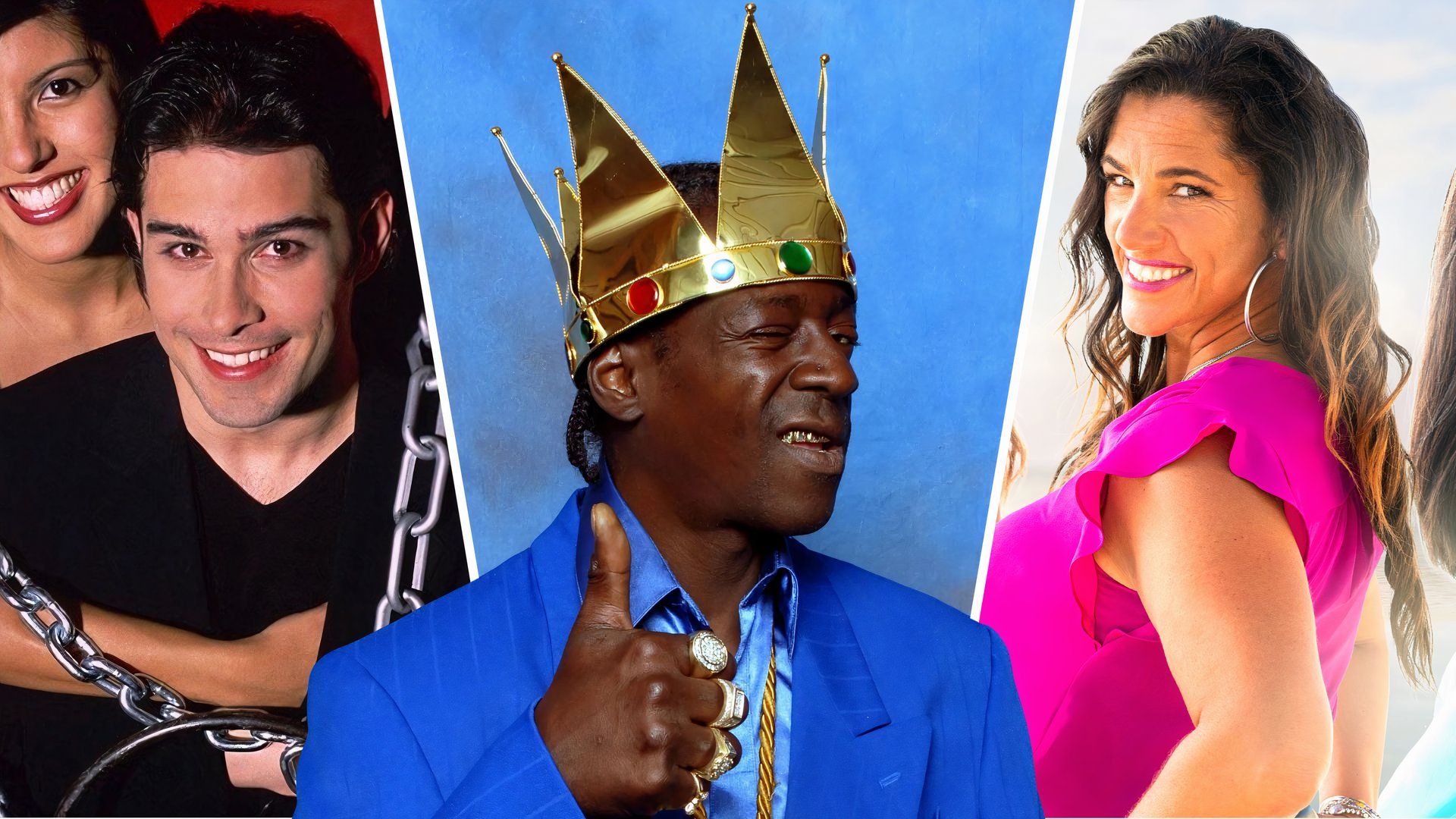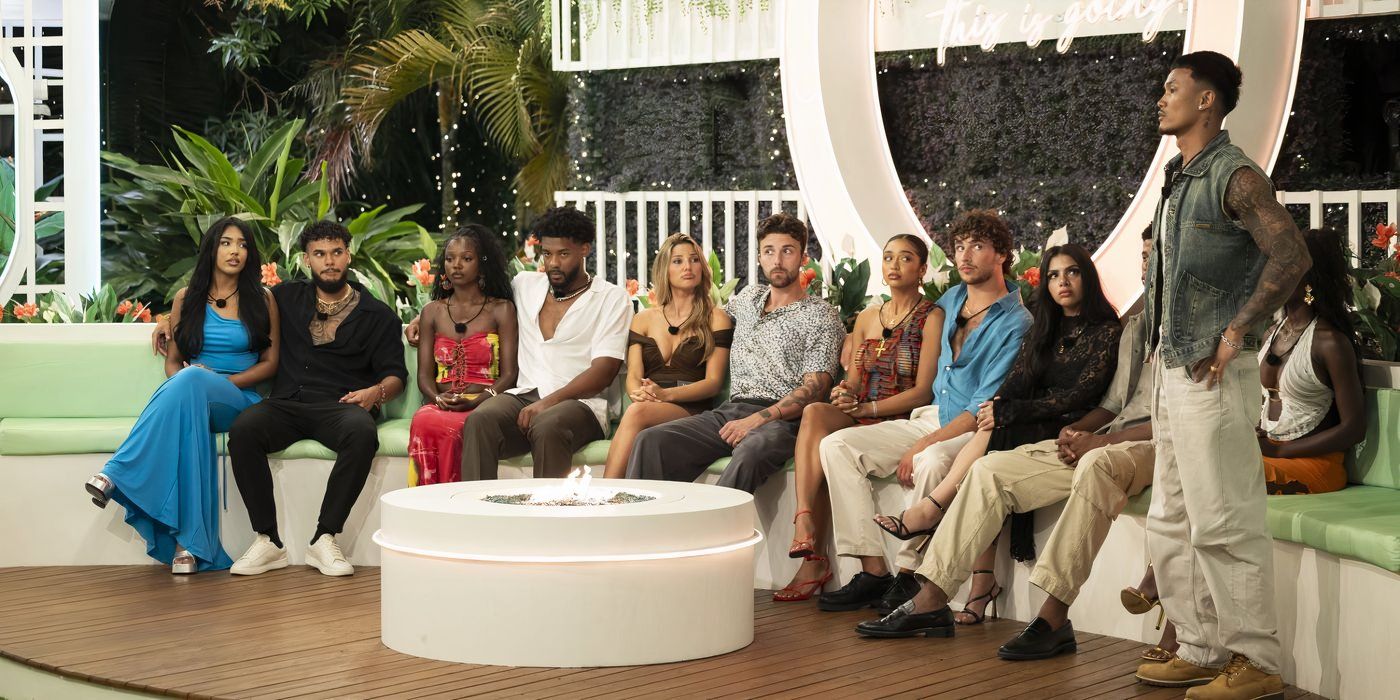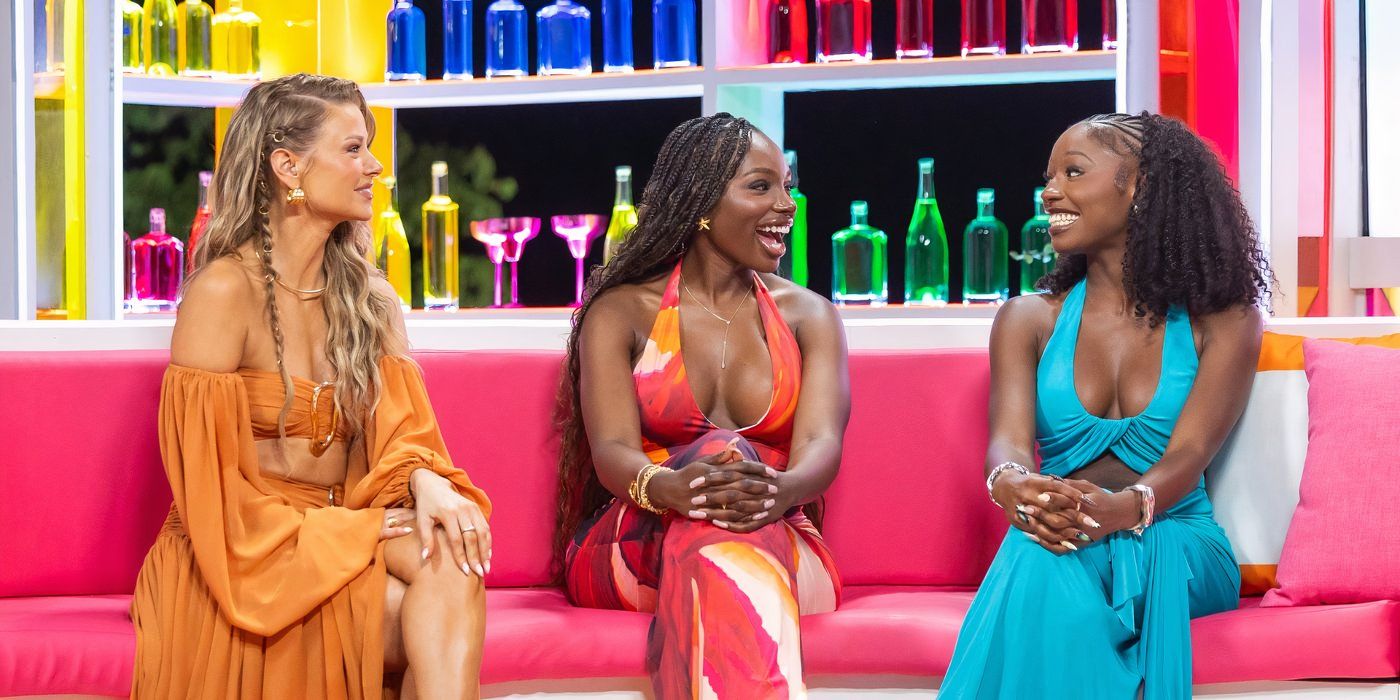People have been vicariously watching attractive singles look for love on live television since 1965’s The Dating Game. Back then – in a format that’s been oft-parodied by sketch comedies like SNL – a bachelorette would interview three suitors whose identities were obscured. The questions and answers were suggestively tinged with double entendres, making The Dating Game controversial in its own time (and that was before a serial killer not only appeared on stage but won the date.)
Modern dating shows still rely on many of the tropes invented by the 1960s versions. The Bachelor and Bachelorette still task one man or woman with finding a fiancé among a pool of eager suitors. Love is Blind still challenges its contestants to choose a partner without the benefit of getting to see them first. These series proliferate because audiences love love (and manufactured drama) just as much as the twentysomethings who subject themselves to competing for it on screen. And no contestants have subjected themselves to as much manufactured drama as “the Islanders” on Peacock‘s hit reality series Love Island.
Love Island USA
- Release Date
-
July 9, 2019
- Network
-
CBS, Peacock
- Directors
-
Ryan ‘Reinhardt’ Vermeulen, Paul Newton, Marty Denholm
-

Iain Stirling
Self – Narrator
-

Arielle Vandenberg
Self – Host
-

-

‘Love Island’ Goes Far Beyond the Tropes of Other Dating Shows
Love Island is currently the most talked-about example of the genre, and for good reason. While the shows that came before it – The Dating Game, The Bachelor, and Love is Blind, as well as copycats like Singled Out, Joe Millionaire, and myriad others – revolved around a single conceit, Love Island throws its Islanders for a new loop every week, if not every night. It’s as if producers put Survivor, Big Brother, American Idol, and Temptation Island into a blender and dumped the slurry onto Peacock.
The basic premise is this: a dozen camera-ready, swimwear-clad men and women are sent to Fiji to “couple up.” From there, the Islanders’ relationships are tested and voted upon by their fellow contestants and viewers until one duo is left standing and wins, theoretically, $100,000 and each other. The gamification of Love Island is so convoluted that the show’s creators and the fandom have developed their own terminology to make better sense of it. “Coupling-up” means the contestants choose to date, either as a matter of genuine affection or strategy. “Bombshells” are new, perhaps more enticing contestants who drop in to disrupt existing pairs, often at a second location dubbed “Casa Amor.” “Recouplings” are pivotal moments when Islanders must decide whether to stick with their current partner or try their luck with someone else.

Related
All 8 Seasons of ‘Love Is Blind,’ Ranked From Worst to Best
Between the drama, romance, and love triangles, see where all 8 seasons of Netflix’s ‘Love Is Blind’ rank among one another.
Clearly, the producers of Love Island realized there are only so many fireworks when two people simply get to know and like each other. The viral stuff happens when hell breaks loose, and Love Island throws every known variety of reality TV hell at its contestants. Islanders essentially compete with and against one another for prize money, forming alliances and enemies, participating in outrageous challenges, and having their every waking moment, including those in the bedroom and bathroom, videoed along the way. At various points, they can save or exile their peers. The public also gets a say. They have the power to eliminate their least favorite characters by voting nightly via an app. Love Island airs six times a week and even has its official recap show, Love Island: Aftersun. The high level of fan engagement is undoubtedly one of the reasons for its surge in popularity.
The Format of ‘Love Island’ Puts Contestants Under an Intense Amount of Pressure
That much control, exposure, and audience participation means that the Islanders are under an unnatural and unhealthy amount of real-world scrutiny and interference. The goal of the show then becomes not just to “explore connections” (another trademark phrase), but to survive the gauntlet with one’s dignity and sanity intact. That’s a tall order, because Love Island has become progressively more debaucherous, and the public has gradually become more ruthless. Every reality show has its villain, and in fact, it’s been suggested that the audience itself is the bad guy of Season 7.
Take Huda. The 24-year-old single mother coupled up with Jeremiah on day 1. Although their “connection” wasn’t perfect (issues such as love bombing and unhealthy attachment types were discussed, to the show’s credit), it was strong by the series’ standards. Still, fans voted to couple up Jeremiah with bombshell Iris, sending the already vulnerable Huda into an emotional tailspin. Not long after, Jeremiah was sent packing by the rest of the male cohort. Once, it would’ve been compelling just to observe Huda struggle to tell Jeremiah about her daughter. But that’s not the kind of human behavior that interests Love Island.

Related
14 Weirdest Reality Dating Shows We Can’t Believe Existed
In the never-ending quest to draw in audiences these reality TV dating shows got downright weird and, often, very uncomfortable.
Contestants must also participate in challenges designed to encourage physical contact between parties that might not otherwise be willing. There are gross-out Fear Factor-like games, such as one in which players drink milk from rubber udders and spit it into each other’s mouths. Kiss-offs are pretty self-explanatory. Stunts like the “Heart Rate Challenge” require Islanders to try to arouse each other at random while wearing heart monitors. That’s not so much a fun, ongoing social experiment in the style of Survivor as it is a real experiment that might be done at the Kinsey Institute.
Finding a connection only to have it voted away from you. Knowing that your physicality and personality are constantly being evaluated and ranked by your fellow contestants and the world at large. Being coerced into simulating sex acts and sharing a bed with a relative stranger. And doing it all under the unforgiving eye of the camera and whims of the editing bay. Love Island asks a lot of its contestants for the chance to find love, but really, for the viewers’ entertainment. Maybe too much. Though a handful of couples have stood the test of time, others have gone on the record about how the show has negatively impacted their mental health, and tragically, some have even died by suicide.
Like pirates seeking treasure, contestants come ashore seeking love and money. Most leave with neither, but a modicum of fame for their troubles. Fans are passionate about Love Island because it’s so much wilder than the average dating show, which says something about the current state of society, love, and reality television in and of itself. But reality TV is still somebody’s reality. On Love Island, the lovers assume the risk, and the audience reaps the spoils. Love Island USA is streaming on Peacock.
Source link



















Add Comment